pepper cultivation can be a promising business opportunity. Because the need for spices in the form of pepper every year increases. Certainly good news for medium-scale business opportunities in the agricultural / plantation sector.
Especially for pepper shrub, in contrast to pepper climbing. The pepper shrub is shrubby and grows close to the ground. So the removal of pepper and erdu seeds is also very easy. It feels no less with pepper climbing, some even say a little stronger.
So many collectors are deliberately looking for peppercorn for resale on consumers. Well, very potential is not it? Well, do not linger, here's how the cultivation of pepper full of shrubs.
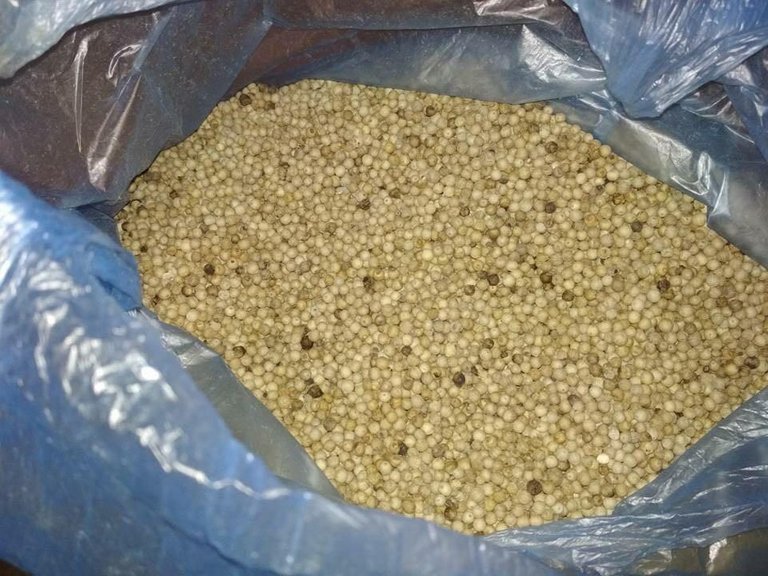
PEPPER CULTIVATION FROM EARLY TO HARVEST
PREPARATION OF LAND POVERTY FARM
Basically to plant pepper shrubs are not required land certain criteria. Almost all soil types can be planted with pepper shrub well. However, the maximum if planted in fertile land with humus content as deep as 1-2.5 m in the third area 300-1.100 masl.
First of all if the land by the way in the hoe or plowed so loose soil.
Then sprinkle the manure and compost, then let stand for 2-3 weeks.
After that make a bundle / mound of ground as high as 0.5 m along the length of the land.
Give the distance between the bunds 1.5-2 m for the drainage ditch.
Adjust the amount of bunds with the area of planting land. Normally, 1 hectare of land can be planted 4500 seedlings with spacing of 2 m.
When planted in polybags, 100 square meters of land can be put 750 polybags.
Pepper pepper per tree can produce 200 g of pepper seed at the age of 2 years, and 500 g of pepper seed at the age of 5 years.
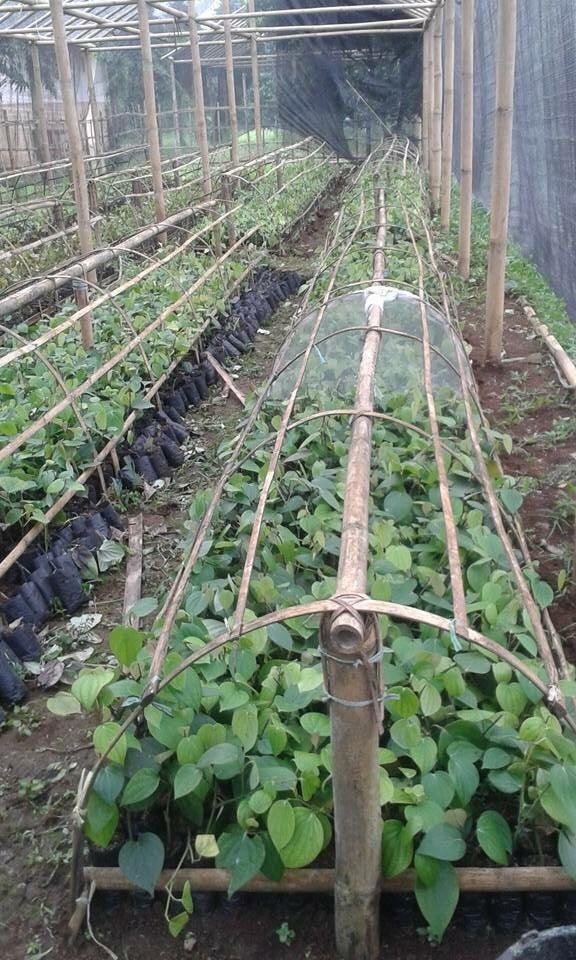
seedlings and pepper growers
Selection of superior pepper seedlings will produce a superior plant as well. So before deciding to search and buy seeds, consider some of the following superior seeding criteria.
Seedlings are from healthy and unrelated parent trees and diseases.
Look for those from the mother tree of 10 months - 3 years old.
Seed is still pure, or not a cross / derivative.
Try to buy from reliable and qualified nurseries.
After seeds are obtained, sort the seeds back for a second time. Who knows there are some who are in damaged condition or die. After all the seeds of pepper shrimp have been selected, then the seeds are ready to be planted in cultivated land.
Make a hole in the bunds as deep as 50 cm with a width of 40 cm. Give the distance between the holes about 2 m.
Then sprinkle the manure and compost on the planting hole, then leave for 10-15 days.
Put a little ground in the hole, stirring with the fertilizer until blended. Just enter the seeds into it and cover it with soil.
Combine with medium pressure on the area around the lower stem.
Flush with water to wet and roots immediately get fresh water.
So that the ratio of growing large seedlings, should be planted during the rainy season.
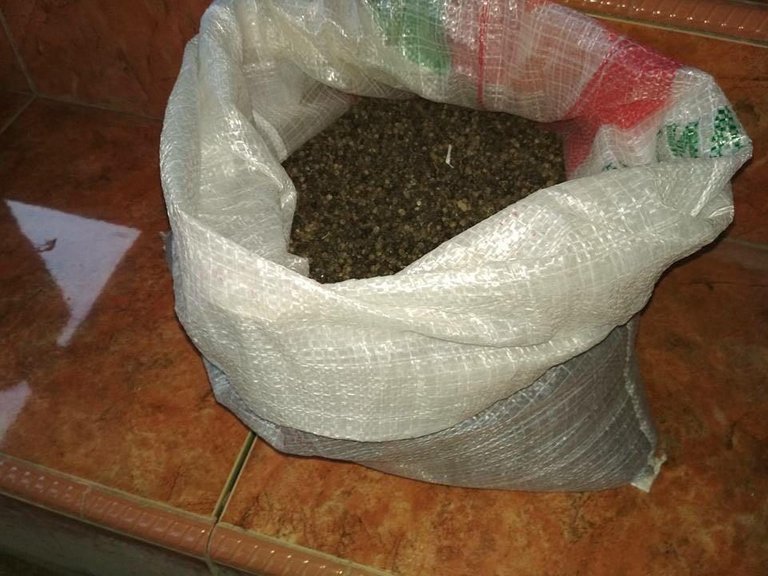
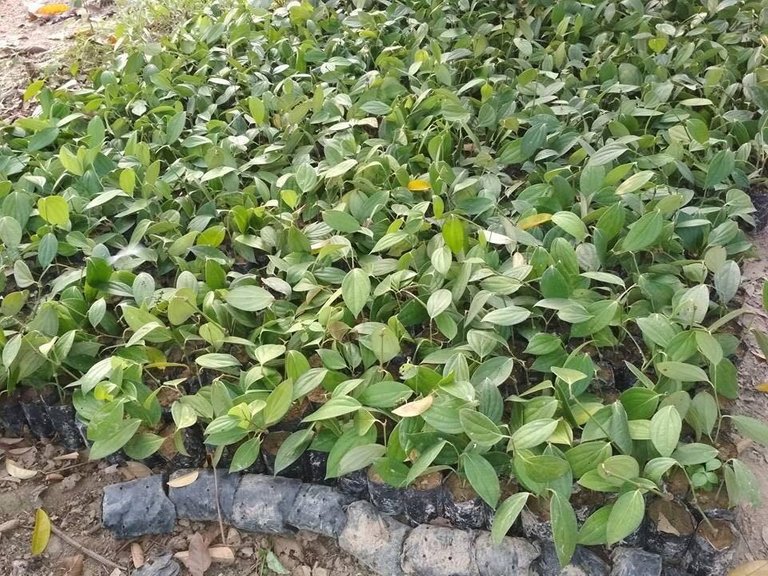
MAINTENANCE AND MAINTENANCE OF LADA PERDU
For the maintenance of pepper crop plants are very easy. Almost certainly not consuming time and also excessive energy. Because the pepper shrub is a kind of shrub, so even though it is left it will still grow and bear fruit. But for maximum results, you should do the following.
Perform weeding on pepper plants perdu periodically, ie every 2-3 months.
Do also pruning stems, branches and twigs that are old, unproductive, or are attacked by pests and diseases.
Perform macro fertilization after 3-4 months of age with Urea composition: SP36: KCl = 7: 3: 4. Months 4-5 Urea: SP36: KCl = 7: 4: 5. Months 5-6 Urea: SP36: KCl = 7: 5: 6. Months 6-17 Urea: SP36: KCl = 7: 6: 7
Give fertilizer POC (Liquid Organic Fertilizer) with a dose of 4-5 lid per spray tank. Do it every month between macro fertilization.
Do the irrigation during the dry season if the heat is very hot and drought plants. Instead, make a bed on the ground so the water does not stagnate.
Give mulch and hatch if necessary only.
Next to note is pests and diseases in pepper shrubs. So although rarely weeded, plant control should be done every day. So if there is an indication of pepper plants attacked by pests and diseases can be overcome so as not to cause crop failure.
Check on the shrimp pepper part, if there is a pest of pegerek immediately kill the pest and cut the stem is attacked by pests. When the amount is much immediately use pesticides for stem borer.
Other pests usually also attack the young fruit, resulting in failure and mature seeds. How to quickly handle it with pesticides and also pungkas base of fruit bunches.
The most common pest of attack is the pest of interest. Where the flowers will be used as a place to lay eggs and food sources for lymph and larvae. So you should use the pesticide and flower dispose of the pest.
For diseases in pepper shrimp usually comes from stem rot and yellow leaves. Both are derived from improper land management factors. So it is preferable before planting and after harvesting must be done fertilization, pH neutralization, and also the provision of soil vitamins.
As much as possible use all the ingredients, either fertilizer, pesticides, or natural vitamins. When it is necessary to just use a chemical.
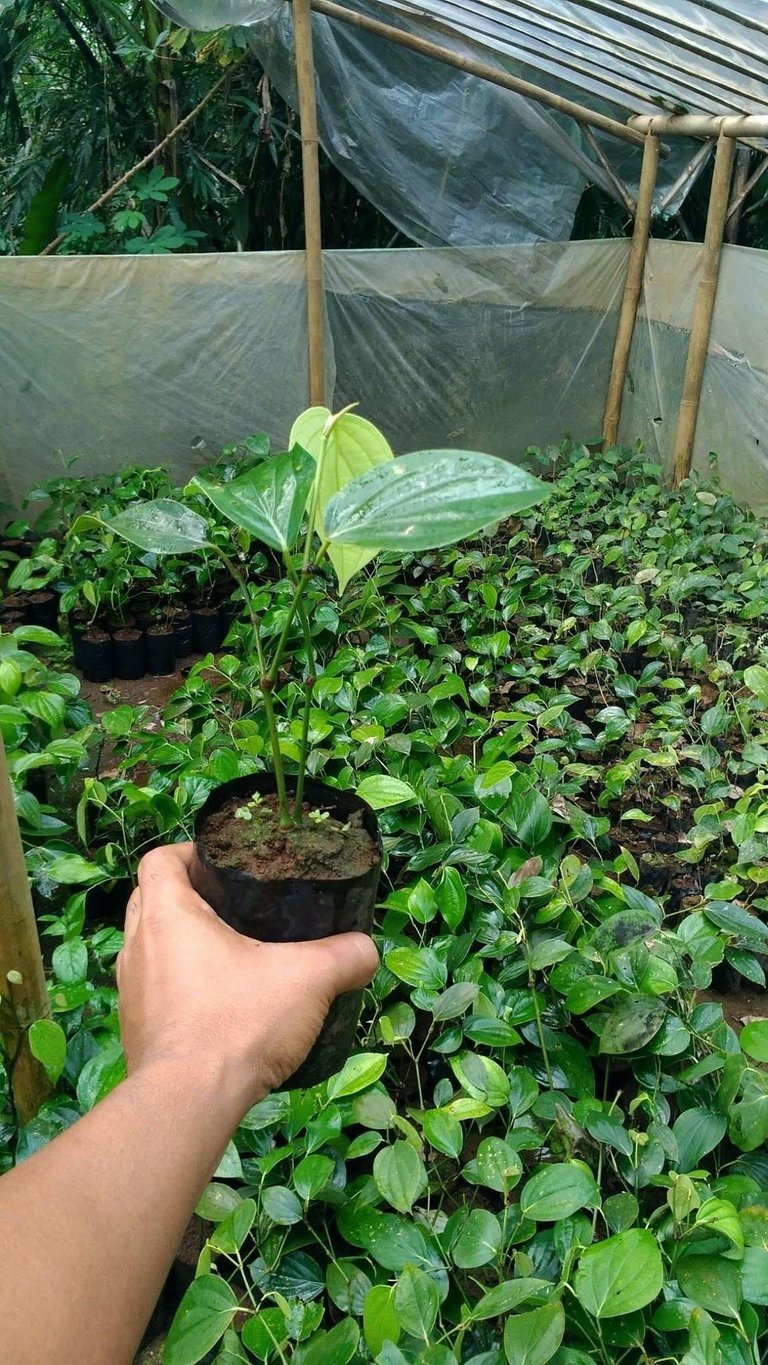
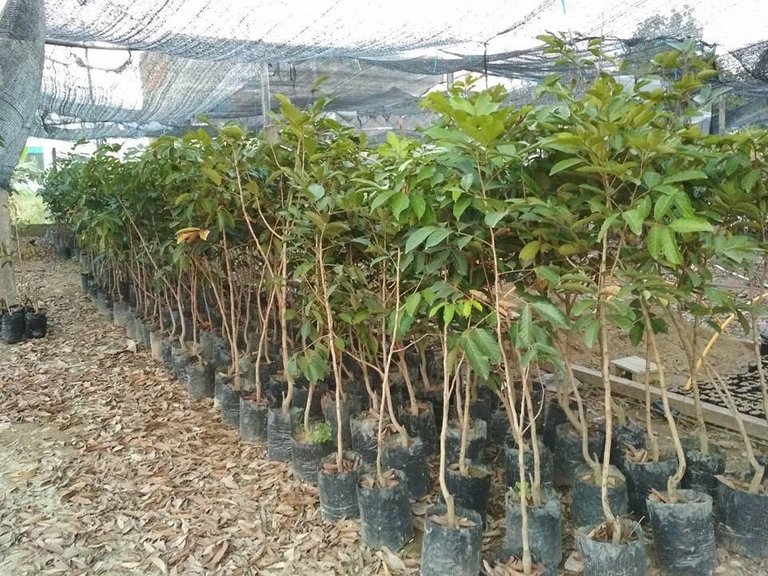
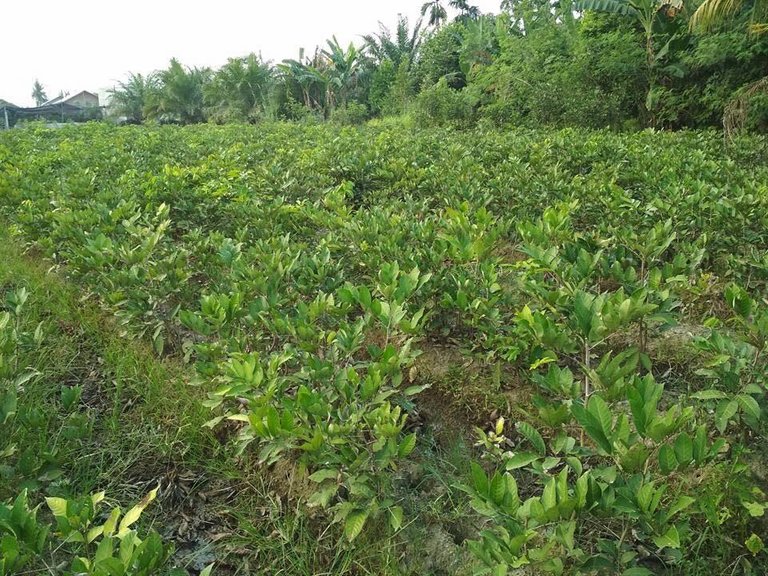
pepper harvest
As expected, every effort has been made to obtain maximum results. Now it's time to harvest there is a peppercorn. Keep in mind, however, that harvesting also takes time, means and also periodic results. So it can not be harvested every day.
Flowers in the first year are discarded / unfilled for lush and sturdy plants first. After that the second year the flowers are fruited and daat in the harvest lapse 9 months upwards, so entering its 3rd year, new pepper can be harvested.
Harvesting can be done routinely every once a week.
The character is a slightly yellow stalk with ripe yellow or red fruit. That pepper sign is ready to be harvested and sold to the collectors.
Harvest by picking the base of the fruit stalk that is on the edge of the stem so that all parts of the pepper are picked up.
after collecting, pipil and separate the pepper from the stalk then put in the sack. Soak for 1 week, remove and remove the skin of the fruit. Separate the seeds and dry it until it can be sold
Shrimp pepper seeds that have been harvested can be sold as black pepper or white pepper.
For the record, harvesting every dry season will be very helpful in the drying process.
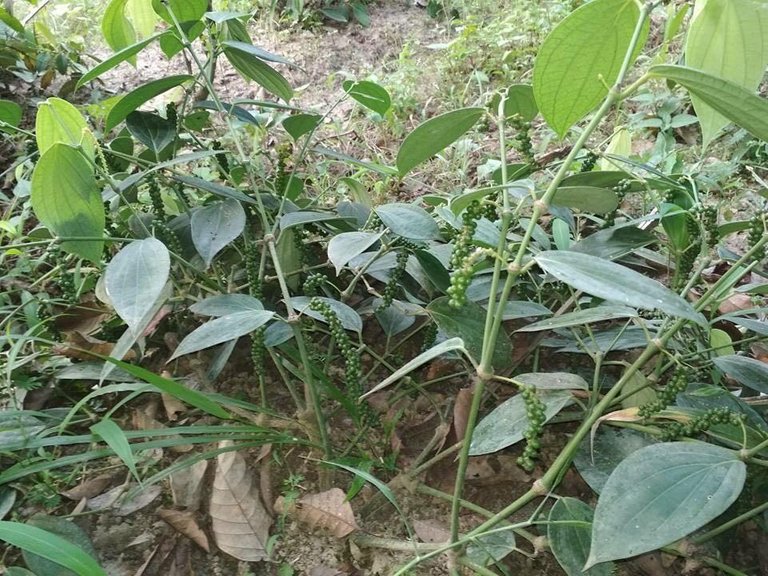
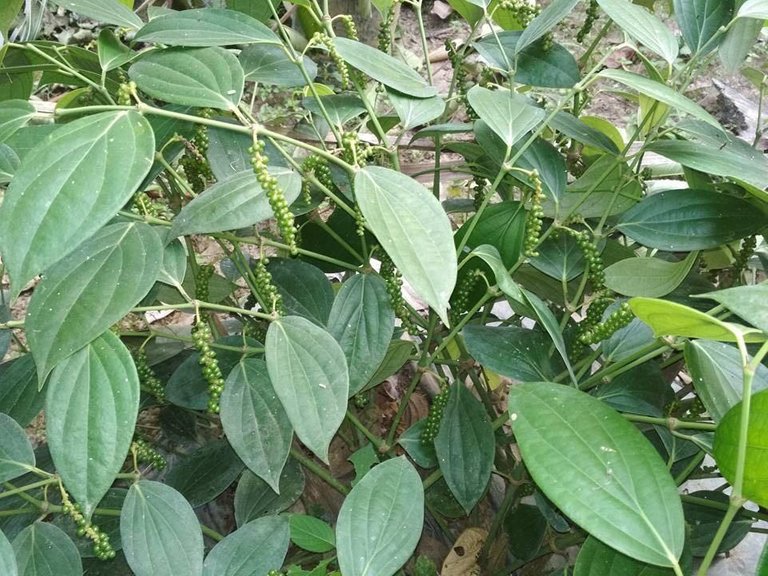
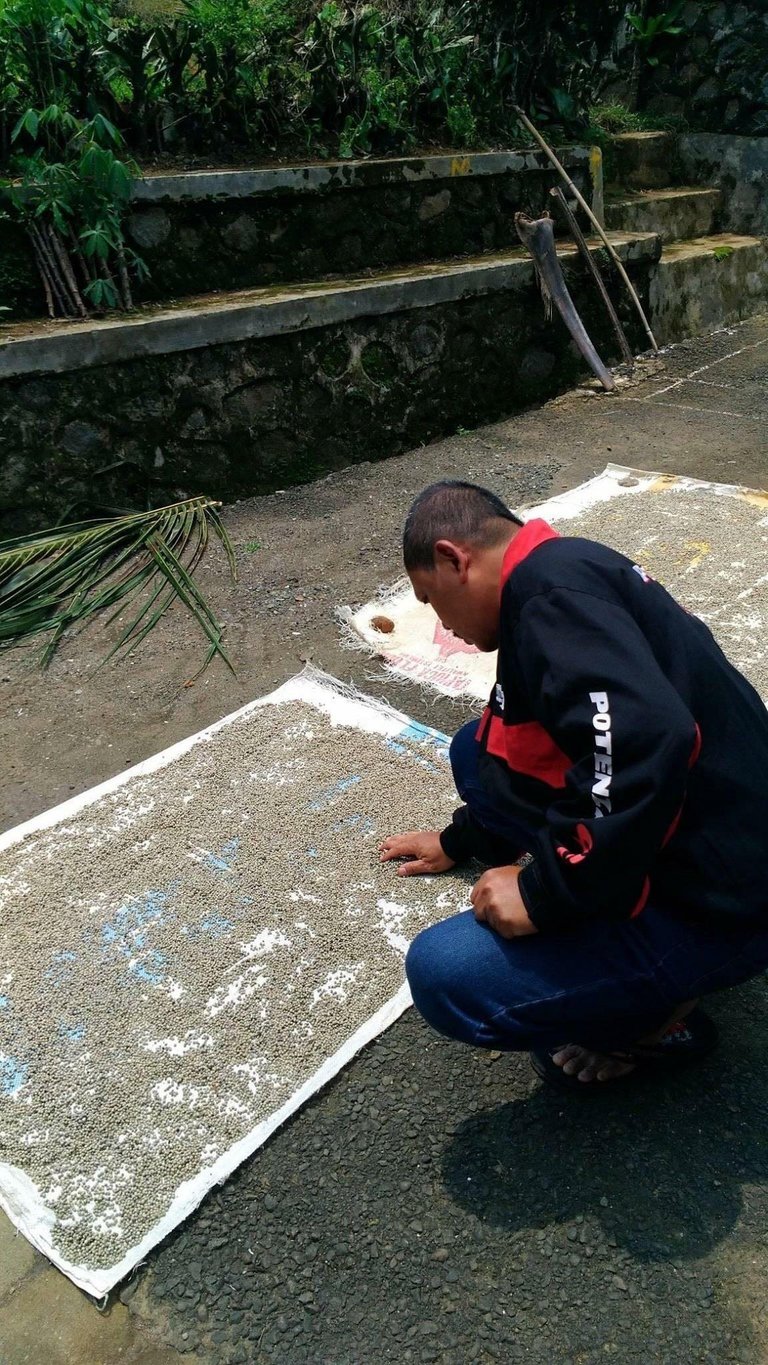

very interisting, thanks for you information